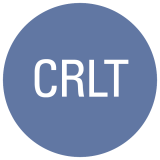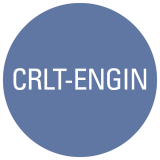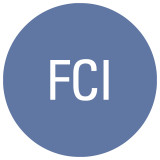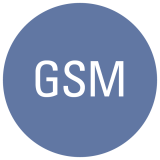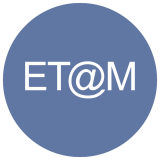| Dates | Title | Details |
|---|---|---|
| 5/17/24 10:00 am - 5/17/24 12:00 pm 5/31/24 10:00 am - 5/31/24 12:00 pm 6/14/24 10:00 am - 6/14/24 12:00 pm 6/28/24 10:00 am - 6/28/24 12:00 pm |
Launching CRLT’s summer book study: Braiding Sweetgrass | Braiding Sweetgrass is a national bestseller which examines the relationship between indigenous knowledge and Western scientific knowledge. Author Robin Wall-Kimmerer, an indigenous scholar and botanist who’s a SUNY Distinguished Teaching Professor of Environmental Biology, suggests there’s more overlap than is often recognized. The book addresses issues of social and historical (in)justice, particularly in relation to indigenous communities in the United States. Together in this four-meeting book study we will explore how Braiding Sweetgrass raises these themes of equity, indigenous ways of knowing, and implications for our own teaching practices through guided reflections and discussions. On May 17th, we will unpack the book’s first section, Planting Sweetgrass. Participants who register for this book study will be asked to attend all four sessions (5/17, 5/31, 6/14, 6/28) and will receive a paperback copy of the book. |
| 5/17/24 1:00 pm - 5/17/24 3:00 pm | Equity-focused Strategies for Leading a Teaching Team | Successful teaching happens when all instructors on a team are adequately supported, invited to share their perspective and feedback, and treated as valued colleagues. In this interactive synchronous session, we will reflect upon our own experiences as team leaders and team members, discuss the range of power dynamics that structure teaching team interactions at U-M, and share strategies to enhance leadership practices. We will also have the opportunity to discuss example scenarios in which these strategies can be effectively used to address concerns that arise in a teaching team setting. |
| 6/5/24 8:00 am - 6/12/24 11:59 pm | Rubrics: Transparent, Consistent, and Efficient Assessment in Support of Students’ Learning | Session Format: Remote Asynchronous (Canvas) Intended Audience: Faculty, Graduate Students, Postdocs, UG Instructional Assistants Facilitator(s): Jeanne Andreoli Session Abstract: Rubrics provide a powerful tool for grading, assessment and feedback, and act as a transparent guide for students’ learning. In this 7-day asynchronous workshop, participants will have an opportunity to explore research-based practices for designing effective rubrics, analyze and evaluate various types of rubrics, and begin to develop or revise a rubric for an assignment in their course. To maximize the benefit of this workshop, please bring a copy of an assignment you use, or plan to use, for one of your courses. GTC eligible? Yes - B2 |
| 6/20/24 10:00 am - 6/20/24 12:00 pm | Communicating Expectations at the Beginning of the Semester | Session Format: Remote synchronous (Zoom) Intended Audience: Graduate Students, Faculty, Postdocs Facilitator(s): Martha Epperson Session Abstract: Get a head start on your fall planning by thinking about your course expectations for students. In this interactive remote workshop, participants will first reflect on the relationship between transparency and classroom rapport. Instructors will consider why and how they communicate the purpose, tasks, and criteria for their course to students. Ultimately, participants will leave with a draft plan for communicating their expectations while simultaneously laying the foundation for a supportive classroom community in the first weeks of the fall semester. GTC eligible? Yes, B2 |
| 6/26/24 10:00 am - 6/26/24 12:00 pm | Exploring Alternative Grading Strategies | Session Format: Remote synchronous (Zoom) Intended Audience: Faculty, Graduate Students, Postdocs, Admin/Staff Facilitator(s): Hayley Heaton Session Abstract: Methods of assessing student performance have a profound effect on students’ learning experience and instructors’ time commitments. This interactive remote workshop will introduce several alternatives to traditional grading, such as contract grading and ungrading. Through individual reflection and conversations with other instructors, participants will explore alternative grading practices and consider how those practices might align with instructors’ course goals. Special attention will be given to how alternative grading methods can help instructors practice equity-focused teaching. This introductory workshop is targeted toward all instructors who are looking to advance their teaching toolkit around assessment of student learning GTC eligible? Yes, B2 |
| 7/10/24 12:00 pm - 7/10/24 2:00 pm | Developing a Plan for Addressing GenAI in your Classroom this Fall | Session Format: Remote synchronous (Zoom) Intended Audience: Faculty, Graduate Students, Postdocs Facilitator(s): Anoff Nicholas Cobblah Session Abstract: In this interactive remote workshop, participants will begin to develop their own plan for responding to Generative Artificial Intelligence (GenAI) in the Fall semester. Through reflection and small group discussions, participants will begin to draft/revise syllabus statements, reconsider assignment prompts, and reflect on how to talk to students about GenAI. Although approaches to these activities should be informed by school/college specific policies and practices, this session will offer insights on how to proactively and inclusively address the use of GenAI in your classroom. GTC eligible? Yes, B2 |
| 7/16/24 10:00 am - 7/16/24 12:00 pm | Facilitating Discussions of Research Literature in STEM | Session Format: In-person Intended Audience: Faculty, Graduate Students, Postdocs Facilitator(s): Sarah Zelner and Waleed Helweh Session Abstract: This workshop provides an opportunity for instructors in STEM courses to discuss evidence-based practices that can promote more effective discussions of research literature. Through a series of group-based activities, instructors will consider methods for helping students effectively engage with readings ahead of class and facilitate productive discussions that include all students. This workshop will be most helpful to instructors who plan to mostly discuss research literature in class and less useful to those running textbook-based or problem-based courses. GTC eligible? Yes, B2 |


